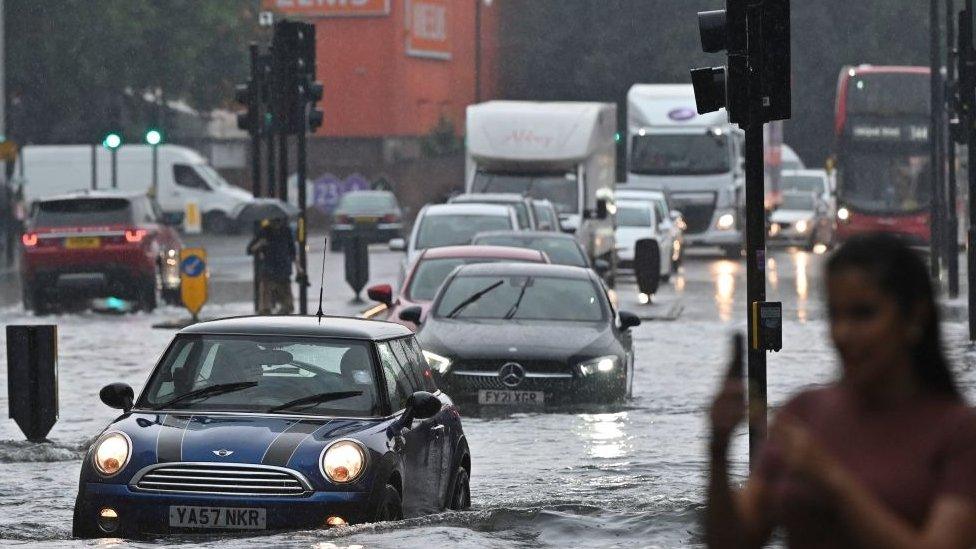Climate change: London is underprepared for extreme weather
- Published
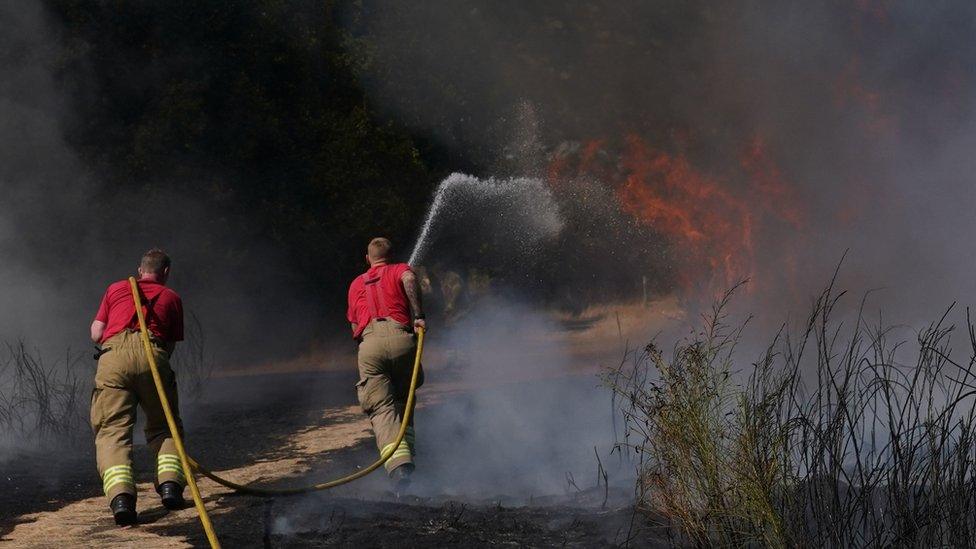
Firefighters battle a grass fire on Leyton flats in east London in August 2022
London is "underprepared" for the impact of climate change such as severe flooding and extreme heat, a climate research group has found.
The London Climate Resilience Review has also said this lack of planning will create a "lethal risk" to the most vulnerable communities.
Review chairwoman Emma Howard Boyd, has called for a "step change" in action.
The Mayor of London said his latest budget proposed an additional £3m to "accelerate climate adaptation work".
The interim report, external published on Wednesday also said London's main climate risks were rising sea levels, surface water flooding, heat, drought and wildfires - such as those seen in Wennington in 2022.
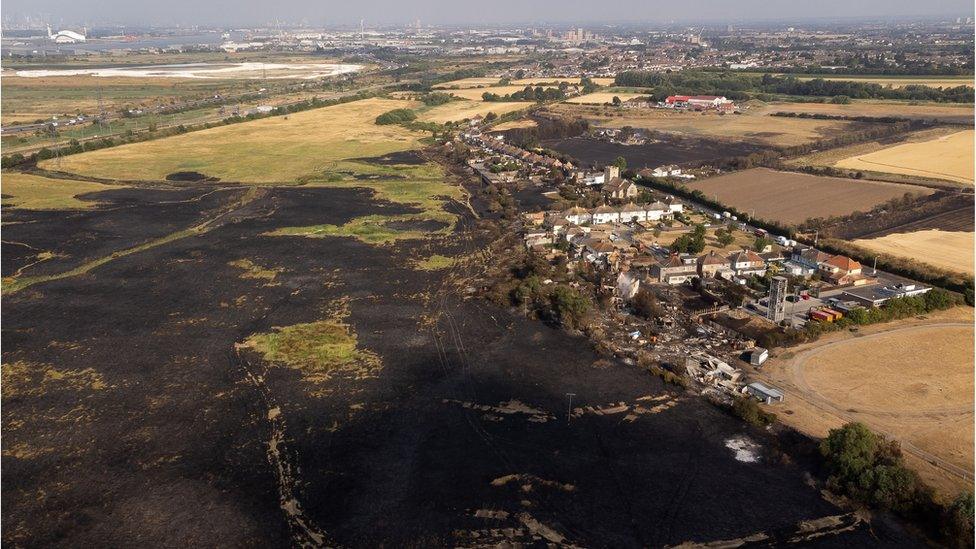
In July 2022 more than 40 houses and shops were destroyed following a grass fire in Wennington, east London
The independent report, which was commissioned by Sadiq Khan, made urgent recommendations for the government and London.
It was launched following the flash floods in 2021 and the 40C heatwave in 2022.
'Take action'
Ms Howard Boyd, added: "London has many good plans and programmes to prepare for climate hazards but we need to recognise that Londoners now face lethal risks, and a step change is needed.
"Last year was the hottest on record and this is causing chaos and disruption all over the world.
"London is not immune, as shown by the flash floods in 2021 and a 40C heatwave in 2022.
"It's time for the UK, led by its cities and regions, to take action and prioritise adaptation."

Extreme weather in London
In July 2022, the London Fire Brigade (LFB) was called to wildfires across the capital, as 40C temperatures took hold.
In one day, the brigade took 2,670 calls and responded to more than 1,000 fire incidents.
The brigade said it was its busiest day since World War Two.
Flames destroyed more than 40 properties and more than a dozen fires broke out across the capital.
The year prior, severe flash flooding struck London as roads turned into rivers and homes and businesses flooded, including the Stratford Shopping Centre.
Within one day, the brigade took about 300 calls - mostly about flooded basements or roads.

Bob Ward, chairman of the London Climate Change Partnership, said heavier rainfall and more intense heatwaves were already "disrupting lives and livelihoods across the capital".
"These impacts will increase in frequency and severity for at least the next three decades, and a failure to adapt will undermine London's status as one of the world's great cities," he said.
Chairman of the National Infrastructure Commission, Sir John Armitt, said: "The truth is that London is not ready to cope with the likely weather changes ahead.
"This interim report lays out what needs to happen to fix that."
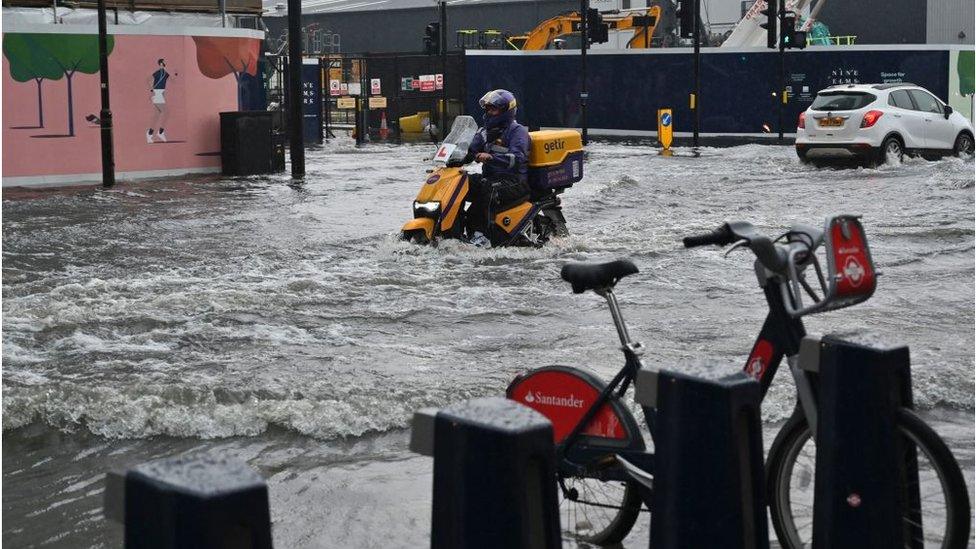
Heavy flooding hit London in July 2021
The report found that despite some progress in preparing for the impact of extreme heat and surface water flooding, London was underprepared for the frequency and severity of climate change currently experienced.
It also found that low-income households, the elderly, minority communities, children and vulnerable health groups faced a "lethal risk".
The report also said that adapting for climate change in London would benefit the whole country, given the capital's economic importance and the presence of critical national infrastructure, including transport hubs and key hospitals.
It also called on the government to give councils more funding and powers to adapt their communities for climate change.
And in London, it said urgent action was needed to prevent major flood damage, including planning for where flood defences need be placed before 2050 and installing sustainable drainage systems.
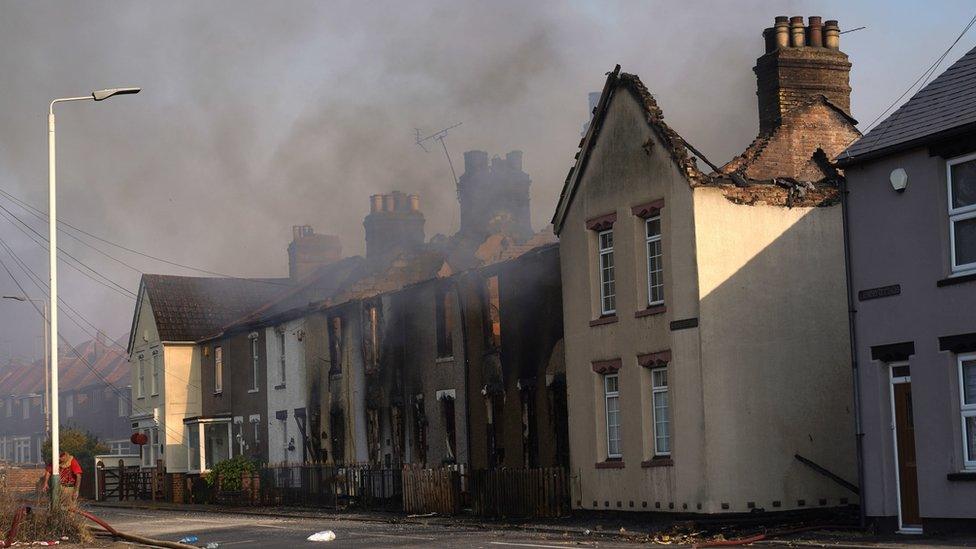
The scene of a blaze in the village of Wennington, east London in July 2022
Mr Khan said: "Work led by City Hall and London boroughs has long been under way to prepare the capital for the increasing frequency and intensity of climate risks.
"We will be looking at how we can take forward the recommendations identified so far and urging others, especially government, to do the same."
The mayor added that later in the year, the London Resilience Partnership will carry out an exercise to test the capital's preparedness for a severe heat episode.
Denise Bower, of management, engineering and development consultancy Mott MacDonald, said the interim findings set out a "compelling case for the changes needed in London".
"They also have important lessons for cities across the UK and globally," she added.
Dr Rhian-Mari Thomas, CEO of the Green Finance Institute, has said it "fully supports" the interim conclusions of the report.
The review gathered evidence from the public and organisations including charities, councils, the NHS, Transport for London, London Fire Brigade, the Met Police, the Greater London Authority, the government, the financial services sector and sports and cultural institutions.
The full report is due to be published later in the year.

Listen to the best of BBC Radio London on Sounds and follow BBC London on Facebook, external, X, external and Instagram, external. Send your story ideas to hello.bbclondon@bbc.co.uk
- Published20 July 2022
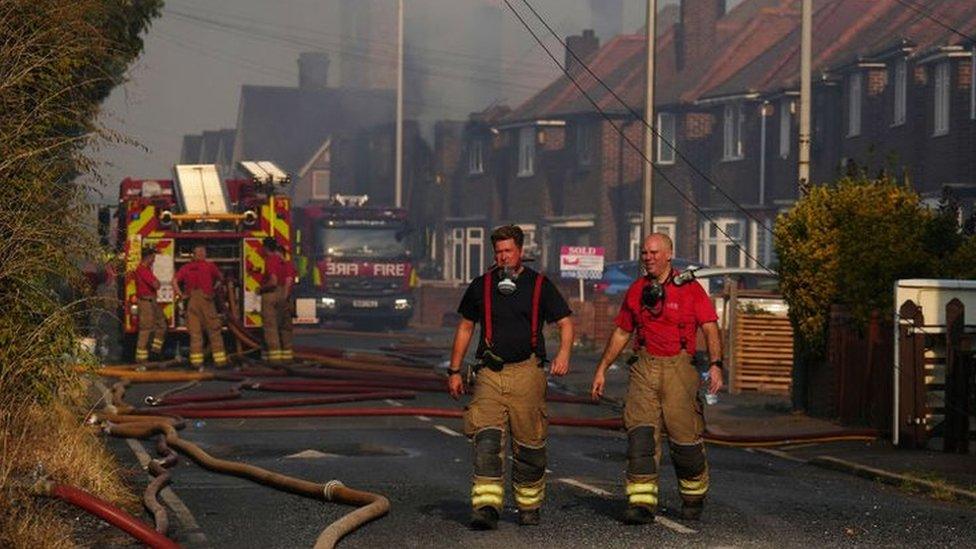
- Published25 July 2021
